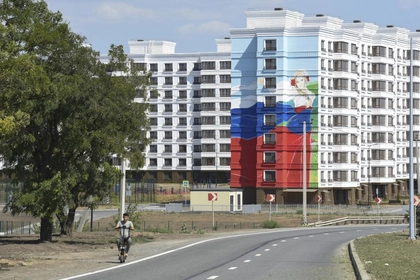Iran has sent short-range missiles to Russia that are expected to be used against Ukraine within weeks, US Secretary of State Antony Blinken said on Tuesday, as he announced a joint solidarity trip to Kyiv with his British counterpart.
Blinken, on a visit to London, said the United States and its allies would impose new sanctions on Iran for defying warnings on sending the missiles, including on state carrier Iran Air.
JOIN US ON TELEGRAM
Follow our coverage of the war on the @Kyivpost_official.
He said that dozens of Russian military personnel have trained in Iran using the Fath-360 missile, which has a range of 75 miles (120 kilometres).
"We've warned Iran privately that taking this step would constitute a dramatic escalation," Blinken told a news conference in the British capital.
"Russia has now received shipments of these ballistic missiles and will likely use them within weeks in Ukraine against Ukrainians.
"Iran's new president and foreign minister have repeatedly said that they want to restore engagement with Europe. They want to receive sanctions relief. Destabilising actions like these will achieve exactly the opposite," he said.
Blinken and UK Foreign Secretary David Lammy said they would travel together "this week" to Ukraine, in the first such joint trip in recent years.
"We are the closest of allies, so I'm delighted that we will travel together, demonstrating our commitment to Ukraine," Lammy said.
- 'Special relationship' -
Blinken's trip comes ahead of a White House visit on Friday by UK Prime Minister Keir Starmer, his second trip to Washington since his Labour Party triumphed in July elections and swept out the Conservatives after 14 years.

Moscow Imposes Russian Car Insurance in Occupied Ukraine by 2025
While the US-UK "special relationship" has persevered across partisan lines, Labour has traditionally been closer in its core principles to President Joe Biden's Democratic Party.
But for Starmer, a full alignment with the Democrats' agenda could carry risks just two months before US elections in which Biden's political heir Kamala Harris is running neck and neck with Republican Donald Trump.
Starmer has made clear that he will maintain the previous Conservative government's stance of staunchly backing Ukraine against Russia's invasion, with Britain frequently nudging the United States to ease restrictions on military support.
Last week, London said it was sending 650 new specialist missile systems to boost Ukrainian air defences, after President Volodymyr Zelensky criticised the pace of weapons deliveries.
Lammy said, after Blinken arrived late on Monday, that London and Washington were "committed to supercharging our alliance", as "in a more volatile and insecure world, it is even more important that we are highly aligned nations".
Former human rights lawyer Starmer, however, has taken a harder line than the Conservatives on Israel, which relies on the United States as its foremost backer in the Gaza war.
His Labour government last week announced restrictions on some weapons to Israel, voicing concern that they could be used to violate international humanitarian law.
The United States declined to criticise Britain's decision, saying that its ally had its own processes to make assessments, even after the US State Department's own review concluded there were no grounds to restrict weapons.
The Labour government has also dropped its Conservative predecessor's plans to challenge the right of the International Criminal Court to seek the arrest of Israeli Prime Minister Benjamin Netanyahu.
The United States -- while backing The Hague-based court when it comes to Russia -- has denounced the bid to target Netanyahu, arguing that Israel has its own ways to ensure accountability.
Labour and Biden are far more aligned on a another issue, though: Ireland.
Biden, proud of his Irish heritage, has made no secret of his alarm that the Conservatives were jeopardising the fragile peace in Northern Ireland through Britain's divorce from the European Union.
Starmer on Saturday paid a friendly visit to Ireland in the aim of resetting relations, with both countries pledging to safeguard the Good Friday Agreement, the landmark US-mediated accord from 1998 that ended decades of sectarian violence over British rule in Northern Ireland.
Since taking power, Starmer has moved to begin the repeal of a law granting conditional immunity to perpetrators of crimes during the so-called "Troubles".
You can also highlight the text and press Ctrl + Enter






